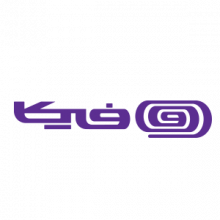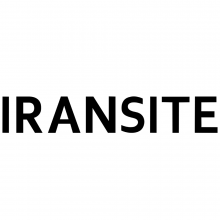
There are 6 Companies in Iran
that provide Angular Development Services!
Nukes, uranium, and sanctions - that’s all the western world thinks Iran is about. However, it turns out that Iran has a well-developed ICT sector. Obviously to control the weapon heritage, and to resist against sanctions, but not only
Discover Top IT Companies in Iran specialized in Angular and other related services. Find the best IT service providers for your projects.
Angular (formerly AngularJS) is a popular open-source web application framework maintained by Google and a community of developers. It's used for building dynamic, single-page web applications (SPAs) and web-based applications in general. Angular provides a structured and organized way to create complex web applications by extending HTML with additional features and enabling the development of interactive, responsive, and maintainable front-end web interfaces.
Handpicked companies • No obligation to hire • 100% risk-free
Explore Top Angular Development Companies in Iran
Fika, Your Partner in Growth with Love. Let us help your brand achieve remarkable success!
Services:
Nardeban Digital group is a pioneer startup, aiming to design beautiful flawless websites and make them more visible by applying best practices in SEO
Services:
iransite is the first webdesign company in iran that promotes many kind of digital marketing services in 2025.
Services:
web design and web development company in iran, we use most creative ways by most new technologies to create fantastic products
Services:
Codeino company operates with more than 40 employees and professional programmers in the fields of website design, programming and digital marketing
Services:
Welcome to Lidoma, where ideas become reality and we bring lasting experience to businesses. As a leading team in the field of business development, we provide unique and professional services in the digital world under the brand name "Lidoma"
Services:
Filter Angular Development Companies in Iran by Cities
Dive deeper and find the company you need close to you or, from a specific city you prefer. Some of the best companies come from smaller places
Find more Angular Development companies around the world
TechBehemoths is the world's most advanced and user-friendly platform to match IT Companies with real clients without hustle.
The Iranian ICT Industry: Tech Companies & Performance
Iran has a highly skilled workforce, including a significant number of talented IT specialists. The country has a vibrant and growing tech sector, with several successful startups and established companies in the fields of software development, e-commerce, and cybersecurity. These companies have been able to leverage Iran's large, educated population to build competitive IT products and services. Therefore, the country has significant potential in the IT sector, which could play a crucial role in the future development of the Iranian economy.
Why you should work with Iranian IT companies
The IT sector is still passing through a transition period, and finding clients from other countries than itself may be extremely challenging for local IT companies. But, if you have the chance of working with Iranian IT companies - there are at least two reasons to do it.
First, Iranian IT companies will charge you lower than other companies from the neighboring countries. With all these, Iranian web and digital agencies will provide good services and use the same technologies in project execution as Western or Asian companies would do.
The second reason, is the companies are told to be fast-adapting and responsive. It is also worth noting that Iran's large population, strategic location, and vast untapped market have made the country an attractive destination for foreign companies. Iran has a well-educated and youthful population, with over 80 million people, and it serves as a gateway to the broader Middle East and Central Asian markets.
What you should be aware of when working with Iranian IT companies
Now, on the other hand, there is little chance to work with an Iranian IT company, if you are from Europe, or the US. Due to the imposed sanctions, there is a full checkup of who you are and where you are from if entering the country. The security reasons, for many, are a barrier to accessing the Iranian ICT market.
Also, the style of working and delivering projects may be different from what you were used to, and like in all other cases - you are never guaranteed that the product or service will get in time and in good shape.
Moreover, according to Salman Mohammadi from Nardeban Digital Group, a top Iranian IT company, although there might be some differences in the workflow among Iranian companies compared to the EU and North America you can expect good results after some time. You might need to clarify your expectations clearly before the start of projects to avoid future challenges.
How reliable are Iranian IT companies
In terms of reliability, there is difficult to estimate if Iranian digital agencies are comparable with others. On the one hand - there is a need for financial resources, which should stimulate Iranian IT companies to provide services on time, well managed, and delivered in the best shape.
But there is also the feeling of relegation that persists when working with foreign companies, which can create conditions to disobey the signed contract.
Tehran and Isfahan - The Best Places for the Iranian IT Industry
Tehran, the capital city of Iran, is the country's economic and cultural hub. It is home to many businesses, financial institutions, and government agencies, making it a center of economic activity in Iran. The city's large population of over 8 million people, diverse consumer base, and strategic location have made it an attractive destination for both domestic and international businesses. There is also Isfahan, which is located in central Iran and is the country's third-largest city and an important economic center. The city is known for its historic architecture, cultural heritage, and industrial activity, making it an attractive destination for both tourism and business.
Iran IT Talent Pool
Iran has a large population of highly talented and well-educated youth, with more than half of the population under the age of 35. Iranian youth are known for their creativity, innovation, and technical skills, particularly in the fields of science and technology.
What is Angular and what are its benefits for your projects?
Angular (formerly AngularJS) is a popular open-source web application framework maintained by Google and a community of developers. It's used for building dynamic, single-page web applications (SPAs) and web-based applications in general. Angular provides a structured and organized way to create complex web applications by extending HTML with additional features and enabling the development of interactive, responsive, and maintainable front-end web interfaces. Here are some key aspects and concepts of Angular:
-
Component-Based Architecture
-
Templates
-
Directives
-
Dependency Injection
-
Services
-
Routing
-
Observable and RxJS
-
Modules
-
Testing
-
Cross-Platform
Angular's structured approach, strong tooling, and vibrant ecosystem of libraries and extensions make it a powerful framework for building modern web applications. It is particularly well-suited for large and complex projects where maintainability and scalability are crucial.
Companies may choose Angular over other front-end frameworks for their projects for a variety of reasons, depending on their specific needs and priorities.
-
Google Backing: Angular is developed and maintained by Google. This association often gives companies confidence in its long-term support, stability, and continuous improvement. Google's involvement is seen as a sign of reliability and commitment to the framework.
-
Mature and Established: Angular has been around for a while and has a strong track record of being used successfully in large-scale enterprise projects. It has a well-defined architecture and best practices, which can be beneficial for maintaining and scaling applications over time.
-
TypeScript Support: Angular is built with TypeScript, a statically-typed superset of JavaScript. TypeScript provides better tooling, code maintainability, and catches errors at compile time, which can reduce bugs and enhance code quality, making it attractive to companies that prioritize robust code.
-
Full-Featured Framework: Angular provides a comprehensive set of tools, libraries, and features out of the box, including routing, form handling, HTTP client, and more. This can save development time and effort compared to integrating multiple third-party libraries in other frameworks.
-
Two-Way Data Binding: Angular offers powerful two-way data binding, which allows for automatic synchronization between the data model and the view. This feature can make it easier to develop interactive and responsive user interfaces.
-
Large and Active Community: Angular has a large and active community of developers and a wealth of resources, including documentation, tutorials, and third-party libraries. This can be beneficial for finding solutions to common problems and getting support when needed.
-
Enterprise-Ready: Angular provides features like dependency injection, modularity through modules, and a strong emphasis on testability. These characteristics are well-suited for building robust and maintainable enterprise-level applications.
-
Strict Coding Standards: Angular enforces a set of coding standards and best practices, which can lead to more consistent and readable code. This can be important for companies with multiple developers working on the same codebase.
-
Cross-Platform Development: Angular can be used for building both web and mobile applications. Companies looking to develop applications for multiple platforms may choose Angular for its ability to share code between web and mobile apps using technologies like NativeScript or Ionic.
-
Integration with Backend Technologies: Angular can easily integrate with various backend technologies and APIs. This makes it suitable for projects where the front end needs to communicate with different types of server-side applications.
-
Security Features: Angular provides built-in security mechanisms to help prevent common web vulnerabilities like Cross-Site Scripting (XSS) and Cross-Site Request Forgery (CSRF). This can be crucial for projects with high security requirements.
-
Ecosystem and Tooling: Angular has a rich ecosystem of tools, extensions, and IDE support, including Angular CLI for project setup and management. This can streamline development workflows and improve productivity.
Ultimately, the choice of Angular or any other framework depends on the specific project requirements, the development team's expertise, and the company's long-term goals. Companies evaluate various factors to determine which framework aligns best with their needs, resources, and priorities.





